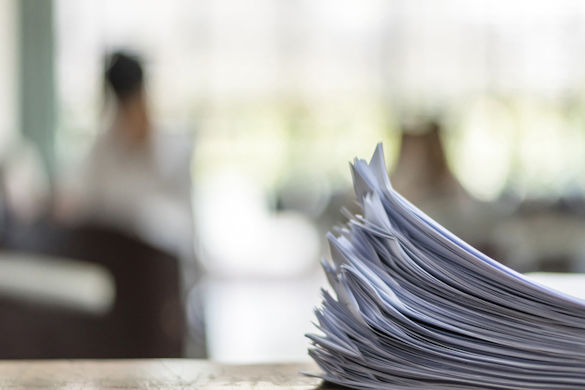Exams and assessments are a major part of studying at university so we’ve compiled a list of things you need to know.
Examination conduct
- Make sure you double-check your personal examination timetable on Liverpool Life. Don’t rely on friends or other students to give you the dates, times or locations of your exams. They might get it wrong and you could risk missing your exam.
- You need to arrive at the examination hall 15 minutes before the start of the exam and you should enter the hall in silence.
- Make sure you have all your writing implements with you in a transparent bag.
- Remember to bring your student ID card and place it on your exam desk.
- You are not allowed to bring any unauthorised material (this includes any notes even if they don’t relate to the exam) into an examination hall – If unauthorised material is taken into an examination hall, this is treated as cheating and you will likely be referred to the University’s Board of Discipline. If a charge of cheating is proven or admitted, the penalties (which usually involve a mark of zero for the module and a suspension of studies for a year) have serious consequences for your overall degree classification and could result in your studies being terminated.
- Make sure you switch off all mobile phones, smart watches and other electronic devices and either place them in a bag at the front of the examination hall or in a sealed transparent bag under your seat. If you have a mobile phone, smart watch or other electronic device with you during the exam this will be considered to be unauthorised material.
- Any cover on your calculator case should either not be taken into the examination hall or removed and placed in a bag at the front of the hall before the start of the exam.
- Make sure you check before entering the examination hall that you haven’t accidentally left any unauthorised material in your pockets (for example, notes, mobile phone, smart watch or other electronic devices). It does happen, so make sure it doesn’t happen to you!
- You need to follow all instructions given to you by the invigilator.
The Regulations for the Conduct of Examinations can be found at: https://www.liverpool.ac.uk/media/livacuk/tqsd/code-of-practice-on-assessment/appendix_D_cop_assess.pdf.
The Notes for Guidance of Examination Candidates can be found at: https://www.liverpool.ac.uk/media/livacuk/student-administration/exams/documents/Notes,for,Guidance,for,Examination,Candidates,JAN,2017.pdf
We recommend that all students taking exams read and digest this important information.
If you have any queries about the exams, please contact the examinations team on examsenq@liverpool.ac.uk or contact your academic department.
Extenuating Circumstances
We have well-established processes in place to deal with situations where students, through no fault of their own, have missing marks or have assessments affected by extenuating circumstances. Our procedures work on the principle of fairness and no detriment to the student, and the relevant examinations board will consider all cases at the end of the academic year.
If you think your performance in an examination or assessment was affected by illness or other unforeseeable circumstances you should submit an Extenuating Circumstances claim with appropriate evidence to your department or school. Make sure you check the deadline by which any claim must be submitted with your department or school – the expectation is normally within five working days. Information about the Extenuating Circumstances Policy can be found at: https://www.liverpool.ac.uk/media/livacuk/tqsd/code-of-practice-on-assessment/appendix_M_cop_assess.pdf. Further guidance on the policy and the types of evidence which may be considered is available at: https://www.liverpool.ac.uk/media/livacuk/tqsd/code-of-practice-on-assessment/appendix_M_Annex1_cop_assess.pdf.
Good luck!
